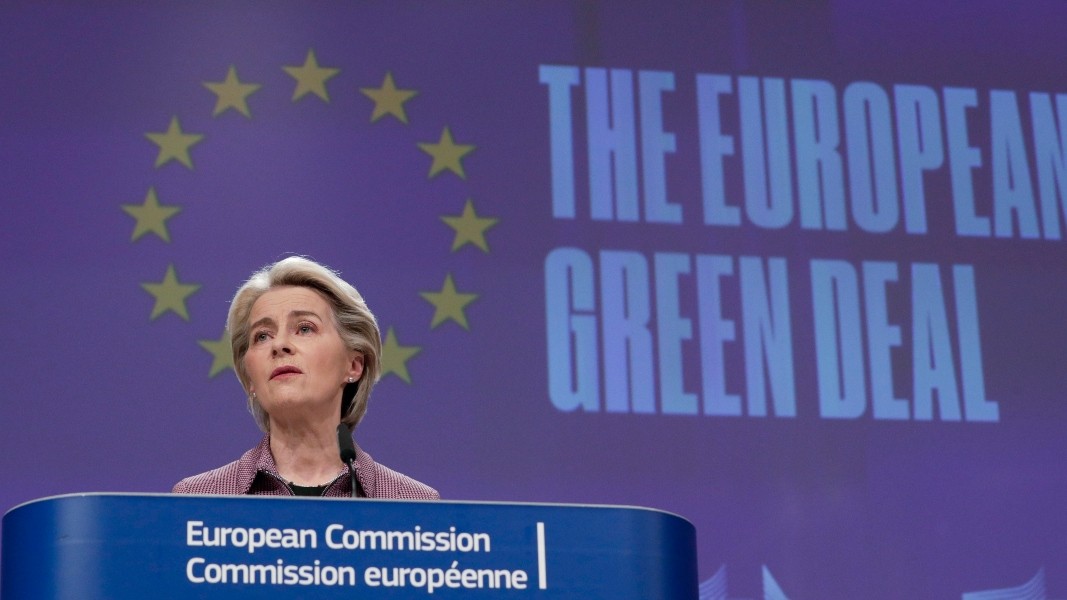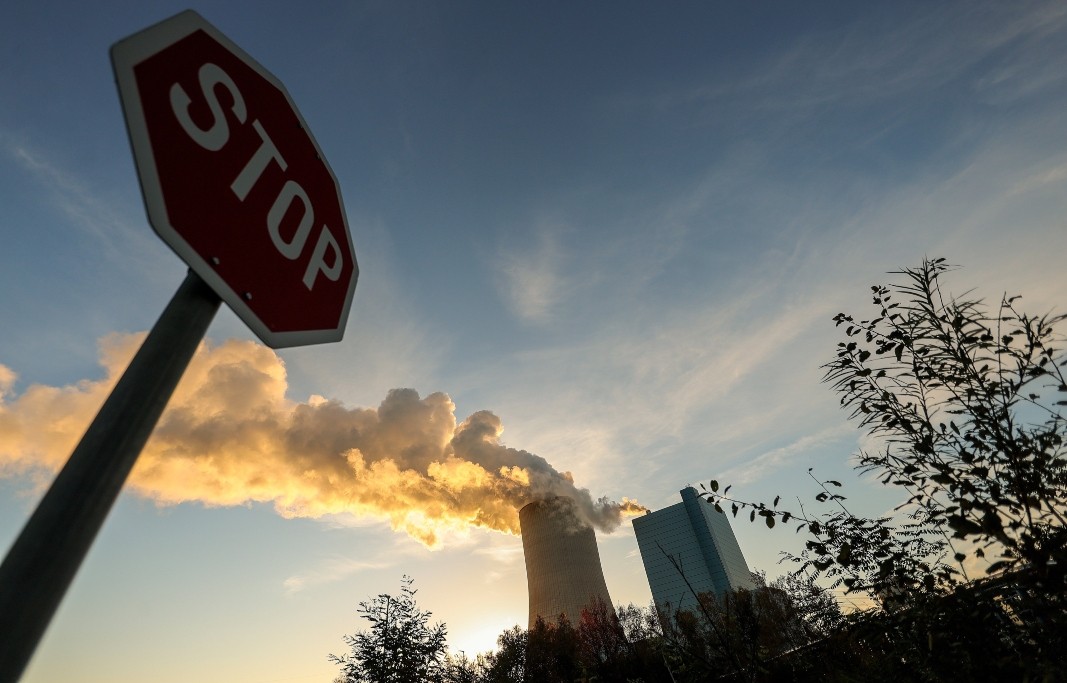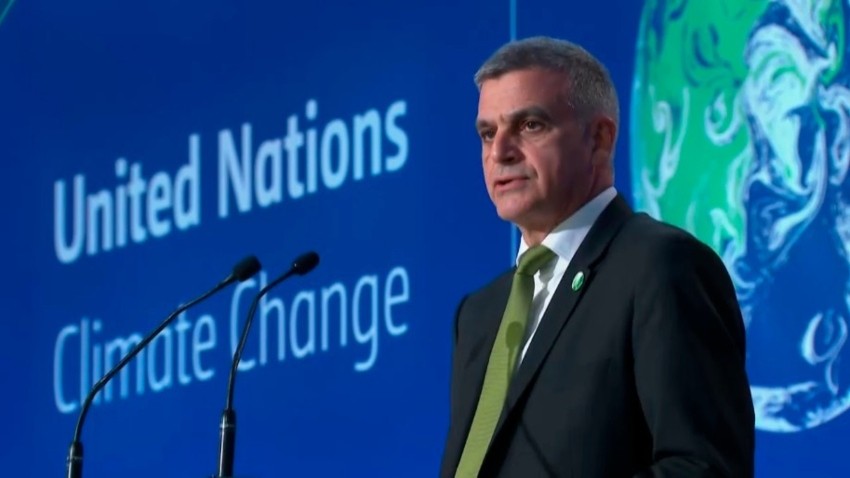The energy transition is at the heart of our European Green Deal, the President of the European Commission Ursula von der Leyen said during the European Sustainable Energy Week. “With the European Green Deal we have proposed we have proposed the world’s most advanced blueprint to reduce emissions”, Ursula von der Leyen noted and added:
“Today our energy system alone is responsible for 75 percent of the EU’s greenhouse gas emissions. We need to decarbonize Europe’s energy mix. The good news is, we are on track to achieve this. In 2020, renewable power generation overtook fossil fuels in the EU. We want to build on this achievement and further speed up the use of renewables in Europe. That is why, for 2030, we propose to raise our renewables target to 40 percent of our energy.”

In Ursula von der Leyen’s words, the production of clean hydrogen is a perfect way to help reach our goal of climate neutrality. It will help to clean up some of Europe’s most polluting industries- steel, aluminum and heavy goods transport. This is why, by 2030, the EU aims to increase annual production of green hydrogen to 10 million tons. “It is high time to move hydrogen technologies from laboratories to factory floors and into people’s everyday lives”, Ursula von der Leyen said referring to the Green Hysland project on the island of Mallorca. It is the first hydrogen valley on a European island. It will generate and use at least 300 tons of hydrogen per year. Green hydrogen will fuel a fleet of fuel cell buses and rental vehicles on the island, generate heating for commercial and public buildings, etc. Another project Clear X, for instance, will help 38,000 in Eastern and Southern Europe to invest in and install renewable energy in systems like photovoltaic panels, batteries, pellet stoves and heat pumps, the President of the EC said further and added:
“Decarbonizing the way we produce energy not only helps our planet. It also provides benefits on other fronts. We have seen in recent weeks how crucial it is to reduce our dependency on fossil fuels such as gas, oil and coal. Currently we are facing a steep rise in energy prices. That has happened before, especially when economies are picking up and supply lags behind demand. Currently, Europe imports 97 percent of its oil, 44 percent of its coal and 90 percent of its gas. This makes our economy extremely vulnerable to price fluctuations in global energy markets and makes us dependent.”

By contrast, the production cost of renewable energies have decreased in recent years, which allows Europe to speed up the transition from fossil fuels to renewables. “Every kilowatt electricity produced with renewable energy helps us reduce our dependency on imports, making our economy more resilient”, Ursula von der Leyen said. In her words, such fundamental transitions are not easy and the Union is aware of the challenges that some industries are facing. That is why the least developed and most vulnerable countries need support. Ursula von der Leyen’s words, “the major economies should help these countries leapfrog beyond a fossil fuel-based economic development”.
“Bulgaria is completely determined to fulfill its commitments to the Paris Agreement”, this country’s Premier Stefan Yanev said during the COP26 UN Climate Chance Conference in Glasgow.

He noted that along with the other member states Bulgaria will work for reaching the goal of climate neutrality by 2050 and for the more ambitious goal of 55% reduction of greenhouse gas emissions by 2030. In Premier Yanev’s view, only a performing and vital economy can be transformed. “Therefore, the national features should be taken into account for a fair and proportionate approach”, Stefan Yanev said. According to him, Bulgaria’s efforts are focused on three main goals: accelerated further development of renewable energy sources and hydrogen; increase of the energy efficiency of the economy and sustainable mobility.
According to Bulgaria’s caretaker Deputy Premier for EU Funds Atanas Pekanov, Bulgaria will manage to fulfill the requirements to decarbonize the coal regions, meanwhile guaranteeing jobs and decent wages to the people employed in these regions. In his words, this will happen thanks to the projects and the reformed envisaged by this country’s Recovery and Resilience Plan and the funds earmarked by the Just Transition Fund. Bulgaria will use this money to modernize production facilities, increase qualification of workers and to invest in new energy technologies and energy efficiency.
English version: Kostadin Atanasov
Photos: EPA/BGNESResidents and guests of the village of Kolena, Stara Zagora Municipality, gather for the Young Wine Festival. The event was celebrated for the first time in 2017, and a few years later the local teacher and winemaker Martin Slavov gave the..
The tallest Ferris wheel in Bulgaria will rise above Pleven , announced regional governor Nikolay Abrashev. It will be built in a multifunctional complex near the Kaylaka Park. "The project envisages the construction of a Ferris wheel with a..
The town of Elena, Veliko Tarnovo region, will welcome thousands of guests for the Feast of the Elena pork leg meat delicacy . Balkan masters will demonstrate their culinary art on Saturday and Sunday, BNR correspondent Zdravka Maslyankova reported...
An innovation for the treatment of diabetic foot ulcer using the patient's own tissue and artificial intelligence has been implemented at the University..
The residents of Pleven (Central North Bulgaria) will bid farewell to 2024 with a Christmas Town and meetings with Santa Claus. This year's festive..
Modernizing critical thinking skills, fact-checking skills and media literacy are essential for society, especially for young people in Bulgaria - the..

+359 2 9336 661
